|
|
|
Editor's note
|
|
Last month, Weezer released its “Teal Album,” an LP that consists entirely of cover songs. One of the tracks, a cover of Toto’s “Africa,” has given the band its first chart-topping hit in 15 years. Colorado College’s Ryan Raul Bañagale explores the history of cover songs – the forms they take, their appeal and when the practice veers into exploitation and appropriation.
Since its emergence in the 1830s in the taverns and on the theater stages of New York and other northern cities, blackface has involved the vicious ridiculing of people of African descent. Blackface offered the perfect entertainment for a slave nation and then, after the Civil War, a society built on racial segregation, writes Michael Millner of the University of Massachusetts Lowell. But its use continued well into the late 20th century, a fact that a Virginia governor's yearbook reminded Americans of in recent weeks.
Parents have to create the right conditions for children to develop their talents. University of Nebraska – Lincoln educational psychologist Kenneth A. Kiewra interviewed parents and coaches of young people who excelled in pursuits as diverse as chess and tennis, to find out what those conditions are.
|
Nick Lehr
Arts + Culture Editor
|

|
|
Top stories
|

A cover song can both enhance and diminish the legacy of the original artist.
PrinceOfLove/Shutterstock.com
Ryan Raul Bañagale, Colorado College
Some covers are recorded as a nod to the legacy of the original, only to end up becoming the definitive version of the song.
|
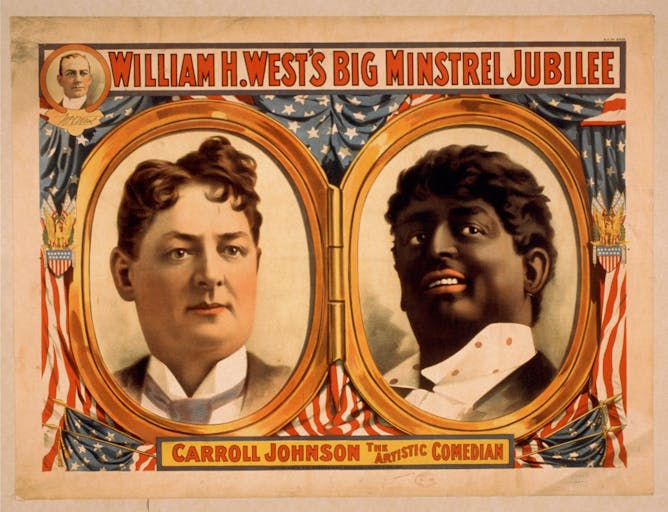
1899 lithograph of white minstrel performer Carroll Johnson depicted in blackface, right.
Library of Congress
Michael Millner, University of Massachusetts Lowell
The public was shocked by the blackface image on Virginia Gov. Ralph Northam's yearbook page. But if blackface is now taboo, there was a time when it played a big role in American culture.
|

Early starts are key to developing children’s talents, experts say.
Eugene Partyzan from www.shutterstock.com
Kenneth A. Kiewra, University of Nebraska-Lincoln
For a child to excel in a particular field, specific conditions are essential. A scholar of educational psychology explains what those conditions are.
|
Arts + Culture
|
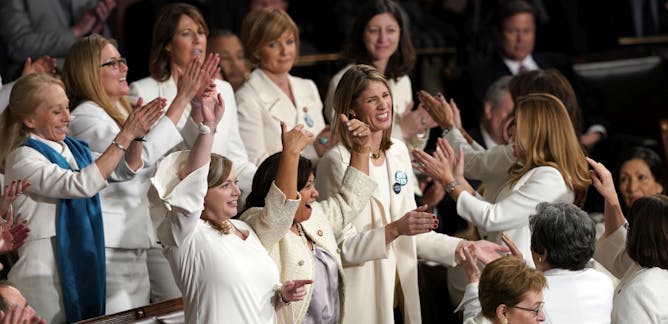
Einav Rabinovitch-Fox, Case Western Reserve University
Being the media-savvy women that they were, suffragists realized they needed to come up with a meaningful, recognizable brand.
| |

Toni Antonucci, University of Michigan; Kristine J. Ajrouch, University of Michigan; Noah J. Webster, University of Michigan
If you're having issues with your partner, one of you might need a nice dose of humility.
|
|
|
Economics + Business
|
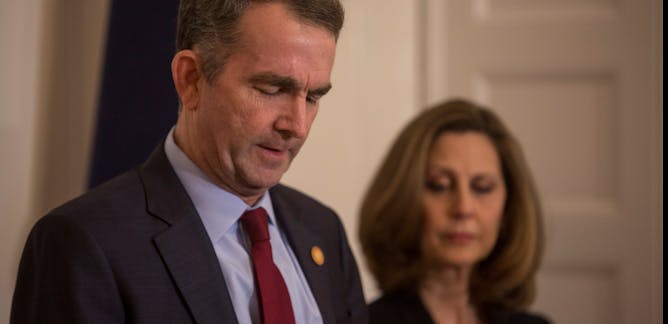
Lisa Leopold, Middlebury
Trying to figure out if Virginia Gov. Ralph Northam or other would-be penitents are sincere? A scholar who analyzed dozens of recent apologies offers a user's guide.
| |

William D. Lastrapes, University of Georgia
Although US debt may be at eye-popping levels, an economist explains why it shouldn't keep you up at night.
|
|
|
Education
|

Nathan Favero, American University School of Public Affairs
Through a three-day strike, Denver teachers got rid of a bonus-based pay system that they say was unfair. An education policy expert explains what the end of bonus-based pay means for Denver schools.
| |

F. Chris Curran, University of Maryland, Baltimore County
Zero tolerance policies in America's schools are declining, but you might not be able to tell since so many practices get lumped under the 'zero tolerance' label, a school discipline expert says.
|
|
|
Environment + Energy
|

David Cash, University of Massachusetts Boston
It's often more effective, cheaper and less controversial than other efforts to confront climate change.
| |

Stephanie Anderson, Florida Atlantic University
US agriculture is dominated by large farms that rely on chemical inputs. In contrast, regenerative farming makes land and water healthier by mimicking nature instead of trying to control it.
|
|
|
Ethics + Religion
|

Firmin DeBrabander, Maryland Institute College of Art
On social media, people increasingly feel the need to document every event and incident in their lives in public. What does that mean for romantic love?
| |
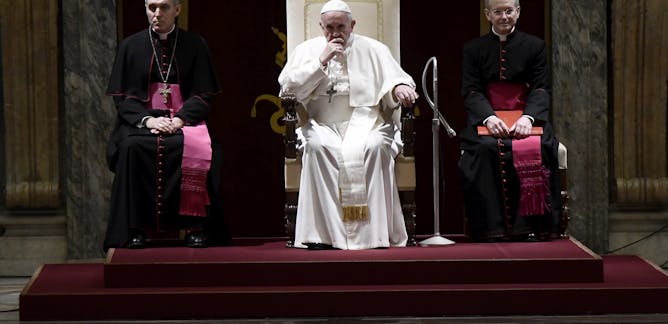
Timothy D. Lytton, Georgia State University
Pope Francis is meeting bishops for a global summit to discuss sexual abuse by clergy. Such a response, says an expert, is part of a past pattern, unlikely to bring a lasting change.
|
|
|
Health + Medicine
|

Adam Moeser, Michigan State University
Women are more prone to immune-related diseases like allergies and irritable bowel syndrome. But this may be due to the fact that they have super-strong immune systems.
| |

Mary C Politi, Washington University in St Louis
A cancer diagnosis is one of the scariest of all. The pain and fear are worsened by a confusing landscape of bills, opaque billing systems and changing insurance rules, rates and reimbursements.
|
|
|
Politics + Society
|
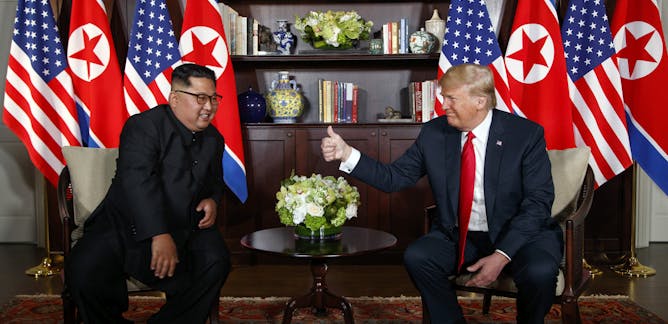
Stephen Collins, Kennesaw State University
Relying only on sanctions against North Korea may not be a productive way to get the country to give up its nuclear arms. Offering relief and aid may be more effective.
| |
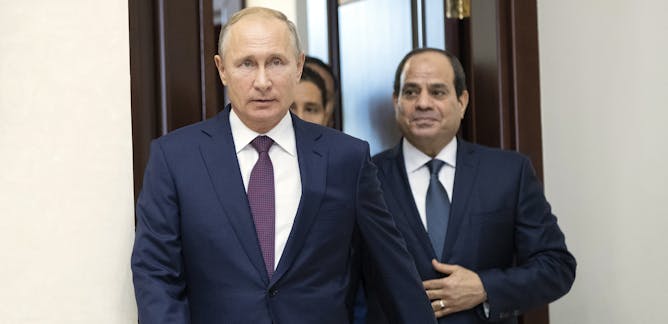
Nathaniel Greenberg, George Mason University
Russia's efforts to sow discord, discontent and chaos extend far beyond the US, including into leading media outlets in the Arab world.
|
|
|
Science + Technology
|
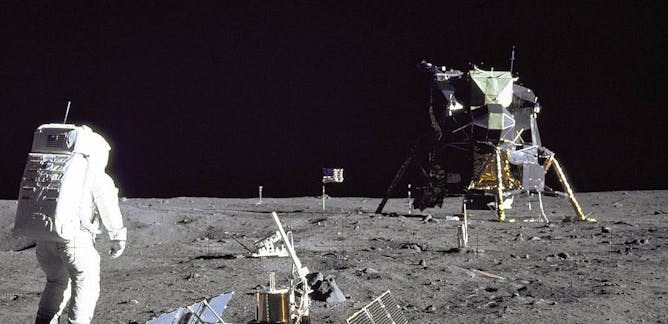
Michelle Hanlon, University of Mississippi
Throughout the world, unique sites of natural and cultural heritage are protected for future generations. But what about sites on the moon that represent the beginning of the human space age?
| |
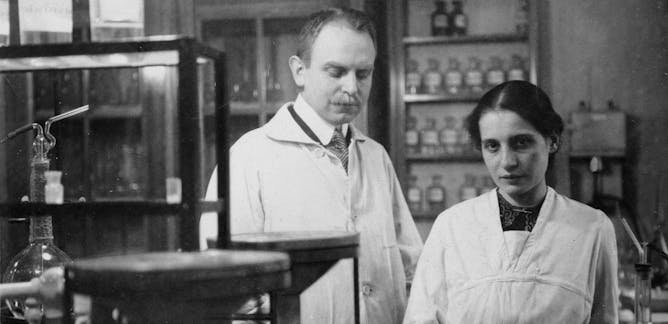
Timothy J. Jorgensen, Georgetown University
Left off publications due to Nazi prejudice, this Jewish woman lost her rightful place in the scientific pantheon as the discoverer of nuclear fission.
|
|
|
| |
| |
| |
| |
| |
| |
|
|
|
|
|
|
|